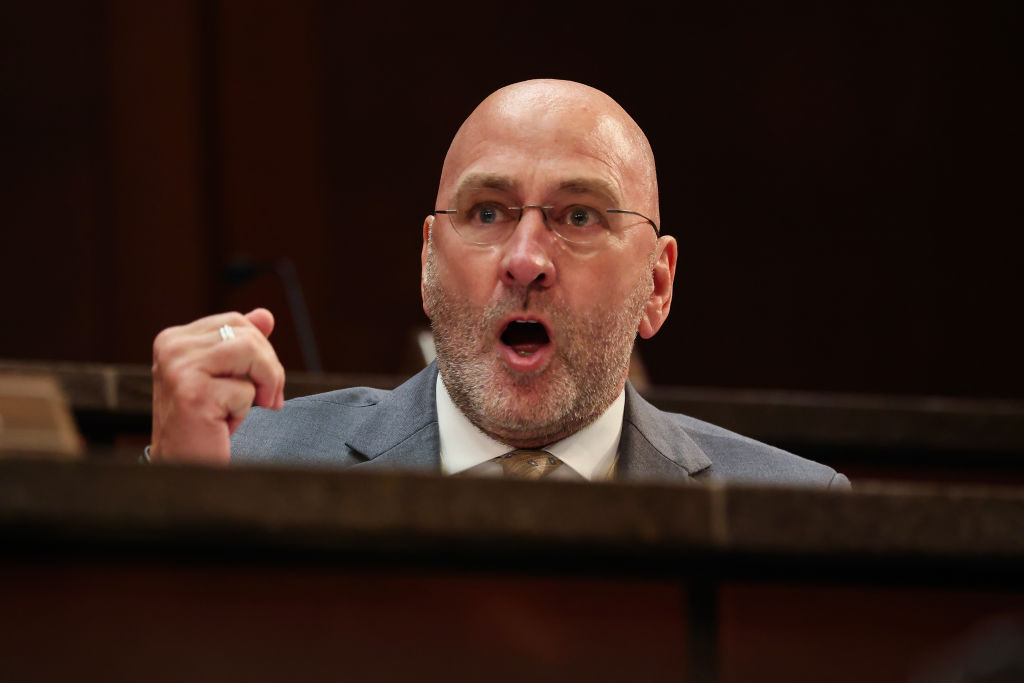Understanding the Controversy Surrounding Clay Higgins and the Epstein Files
The recent debates surrounding the release of the Epstein files have reignited discussions about transparency and accountability in governmental processes. One of the most significant figures in this debate is Clay Higgins, a member of the U.S. House of Representatives. In this post, we will dive deep into why Clay Higgins voted against the release of these files and the implications of this decision.
Epstein’s case has been a focal point of media conversations, primarily due to allegations involving numerous high-profile individuals. Those who believe that transparency should prevail in such matters have expressed disappointment at the votes against releasing the files, particularly by politicians like Higgins. The ramifications of keeping these files secret impact trust in public officials and the justice system.
Who is Clay Higgins?
Clay Higgins is a Republican politician serving Louisiana’s 3rd congressional district. Before entering politics, he was a law enforcement officer and became known for his unique communication style in law enforcement videos. His approach to sharing his opinions often resonates with his constituencies but also polarizes views among the public.
The Epstein Files Standoff
The Epstein files refer to a range of documents related to Jeffrey Epstein and the high-profile individuals associated with him. The scandal involves serious allegations of human trafficking, exploitation, and abuse, leading many to call for transparency. In November 2025, a vote took place in Congress to decide whether or not these files should be released to the public.
On this crucial vote, Clay Higgins was among those who voted against releasing the Epstein files. The public reaction was swift; critics argued that such a stance promotes secrecy and undermines efforts to seek justice for Epstein’s victims. In contrast, supporters of Higgins claimed that there might be legal or security reasons for keeping the documents classified.
The Vote and Its Implications
The vote on the Epstein files did not just symbolize a political stance; it served as a litmus test for Congressional ethics regarding transparency. Higgins’ decision to vote against release has created a wave of discussions on how public policies are shaped by personal beliefs and the fallout of those choices. It leads many to question whether political figures prioritize their narratives over public demand for accountability.
This stance highlights a larger issue within modern politics: the tension between governmental confidentiality and the public’s right to know. It also raises conversations about trust in elected officials, especially when they are perceived to be protecting the powerful at the expense of the marginalized.
The Bigger Picture: Transparency in Government
The arguments made by politicians like Clay Higgins often entrench opinions further, signaling a divide in public sentiment regarding transparency in government. Many argue that withholding information from the public—even for reasons such as national security—is a slippery slope that can lead to greater mistrust.
In a democracy, the right to information is paramount. The Epstein case illustrates how high-profile individuals can shield themselves from accountability, which is a concern to many voters who seek representation from their elected officials. The vote against releasing the Epstein files brings to light broader issues of how much power politicians should wield when it comes to disclosures.
Public Reaction and Future Projections
Following the vote, public outrage was palpable. Social media platforms erupted with critique, and activists voiced their discontent at town halls. The response demonstrated a growing trend among the electorate: an increasing demand for transparency and accountability from lawmakers. This case does not just present a challenge for Higgins but also for other politicians facing similar voting decisions.
Going forward, key questions remain: How will Higgins address the backlash? Will he stand by his decision, or will there be an olive branch extended to the constituents who feel disenfranchised? These developments will be crucial as they will influence political landscapes and possibly the trajectories of upcoming elections.
Conclusion
As the dust settles on the voting saga around the Epstein files, stakeholders, including voters and political analysts, will continue monitoring Clay Higgins and others who hold the public’s trust in their hands. The discourse surrounding the Epstein files encapsulates a broader narrative, encompassing the principles of democracy, accountability, and the significant role that transparency plays in maintaining the public’s trust in governance.
Higgins’ vote will not be the last time we hear about the implications of choosing secrecy over transparency in political matters. As such, it serves as a potent reminder of the essential dynamics at play between government officials and the constituents they represent. For more details and ongoing coverage, you can read more here: LA Illuminator on Clay Higgins and the Epstein Files.








